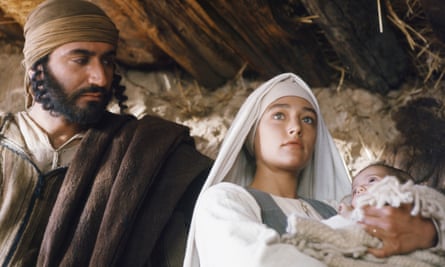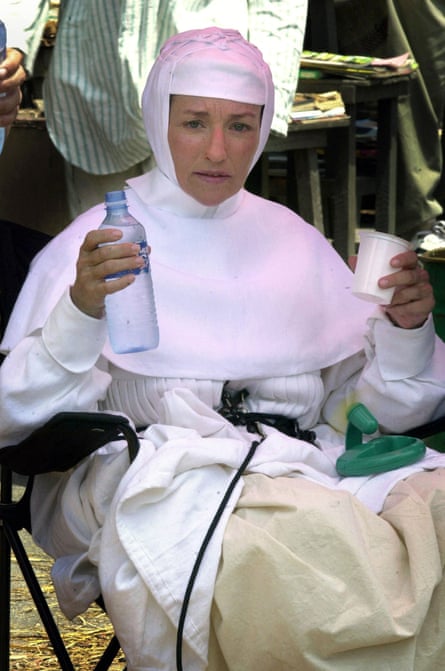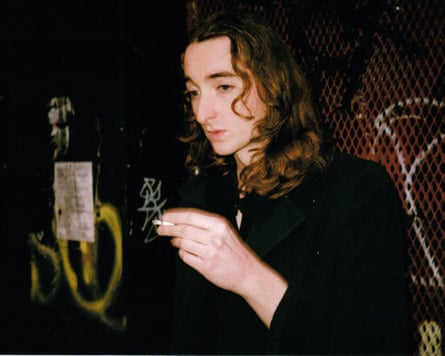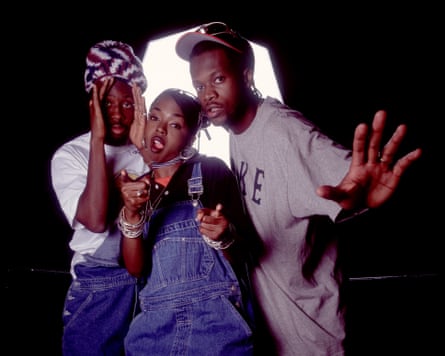When Franco Zeffirelli’s film version of Shakespeare’s Romeo and Juliet was released in 1968, it made the two lead actors, Leonard Whiting and Olivia Hussey, into instant stars. Hussey, who has died aged 73, later said that “while it brought me fame – for whatever that’s worth – and glamour, it also thrust me into a spotlight that, while intoxicating, was at times too bright and too revealing”.
At the time of the filming in Italy of Romeo and Juliet, Whiting was 17 years old, Hussey 16 (in the 1936 Hollywood version, the lead actors were 43 and 34). Zeffirelli was determined that his star-crossed lovers be credible teenagers. In his autobiography, Zeffirelli remembered that he was not immediately impressed with Hussey, saying “she was unfortunately overweight, clumsy-looking and bit her nails constantly”. But later he took a second look, and found that “she was a new woman: she had lost weight dramatically. Her magnificent bone structure was becoming apparent, with those wide expressive eyes and her whole angular self. She was now the real Juliet, a gawky colt of a girl waiting for life to begin.”
While Zeffirelli’s young cast may not have equalled more experienced theatre actors when it came to verse-speaking, judicious cutting of the text combined with close-ups of their luminous faces were more than compensation. The film was an international success, making at least 40 times its budget at the box office. Its timing was perfect, with a fresh interpretation of a 400-year-old play capturing the spirit of youthful rebellion that was then at its height. Hussey was widely acclaimed for her innate delicacy and determination, and she won a Golden Globe award for most promising newcomer.

Hussey was born in Buenos Aires. Her father, Andrés Osuna, an Argentinian tango singer whose stage name was Osvaldo Ribó, was absent for most of her life, as her British mother, Joy Hussey, a legal secretary, took Olivia and her brother, Andrew, to London for their education. Olivia soon displayed a passion for acting, training at the Italia Conti school and making brief appearances in films and television dramas.
In 1966 she won a role in the stage production of The Prime of Miss Jean Brodie, but once cast as Juliet, Hussey never returned to the theatre. In 1969, she settled in Hollywood, moving into the house in Cielo Drive that only five weeks before had been the site of Sharon Tate’s murder by members of the Manson family. It was here, Hussey later said, that she was raped by her then boyfriend, the actor Christopher Jones, and subsequently had an abortion.
Hussey’s career never really fulfilled the promise of her success as Juliet. The producer Hal B Wallis offered her the title role in Anne of the Thousand Days (1969) and the chance to appear opposite John Wayne in True Grit (1969). Her reaction was that “John Wayne doesn’t really do anything for me”. Hussey starred in Bob Clark’s seminal horror film Black Christmas (1974), as the most resourceful member of a university sorority subject to attacks by a mystery murderer. In 1977 she reunited with Zeffirelli to play Mary in his television epic Jesus of Nazareth, and then played Rosalie Otterbourne in Agatha Christie’s Death on the Nile (1978).
In 1971 she married Dean Martin’s eldest son, Dean Paul (Dino), who introduced her to movie royalty past and present. They had a son, Alexander, but by 1978 had divorced, although they remained friends until his death in 1987. During this period Hussey found herself hugely popular in Japan, and despite not speaking the language, married the Japanese singer Akira Fuse. They had a son, Maximilian, but another divorce soon followed. By her own account, Hussey’s most important encounter was with the Indian spiritual guru Swami Muktananda, about whom she later said: “When I met him, the world stopped … I loved him so much and in the end he helped me love myself.”

A third marriage proved longer lasting. She met the rocker David Glen Eisley at Jerry’s Famous Deli in Los Angeles, and they wed in 1991, had a daughter, India, and settled in the San Fernando Valley, where Hussey’s interest in animal rights activism resulted in a growing menagerie. By now the film roles were rarely distinguished, and included a return to horror as Norma Bates in the television movie Psycho IV: The Beginning (1990). She also became a regular voice artist in animation, as well as for the Star Wars video games. In 2003 she played the title role in Mother Teresa of Calcutta, and in 2015 she was reunited with Whiting, her Romeo, in the film Social Suicide.
In 2018, Hussey wrote an autobiography, The Girl on the Balcony, in collaboration with her elder son. In this she was candid about her troubled life of eating disorders, sexual abuse and bankruptcy. She was also effusive in declaring her love for Zeffirelli, who had felt himself a father-figure during the making of Romeo and Juliet. She continued to defend the nude scenes in the film, but in 2022, three years after the director’s death, Hussey and Whiting filed a lawsuit against Paramount Pictures, alleging that Zeffirelli had subjected them to sexual harassment and had filmed them naked without their knowledge. That suit was dismissed by a judge in 2023, as was a second complaining that the Criterion Blu-ray of the film exposed them even further.
In 2008, Hussey was diagnosed with breast cancer, for which she underwent a double mastectomy. But the cancer was to return.
She is survived by her husband and three children.
Source: theguardian.com





















